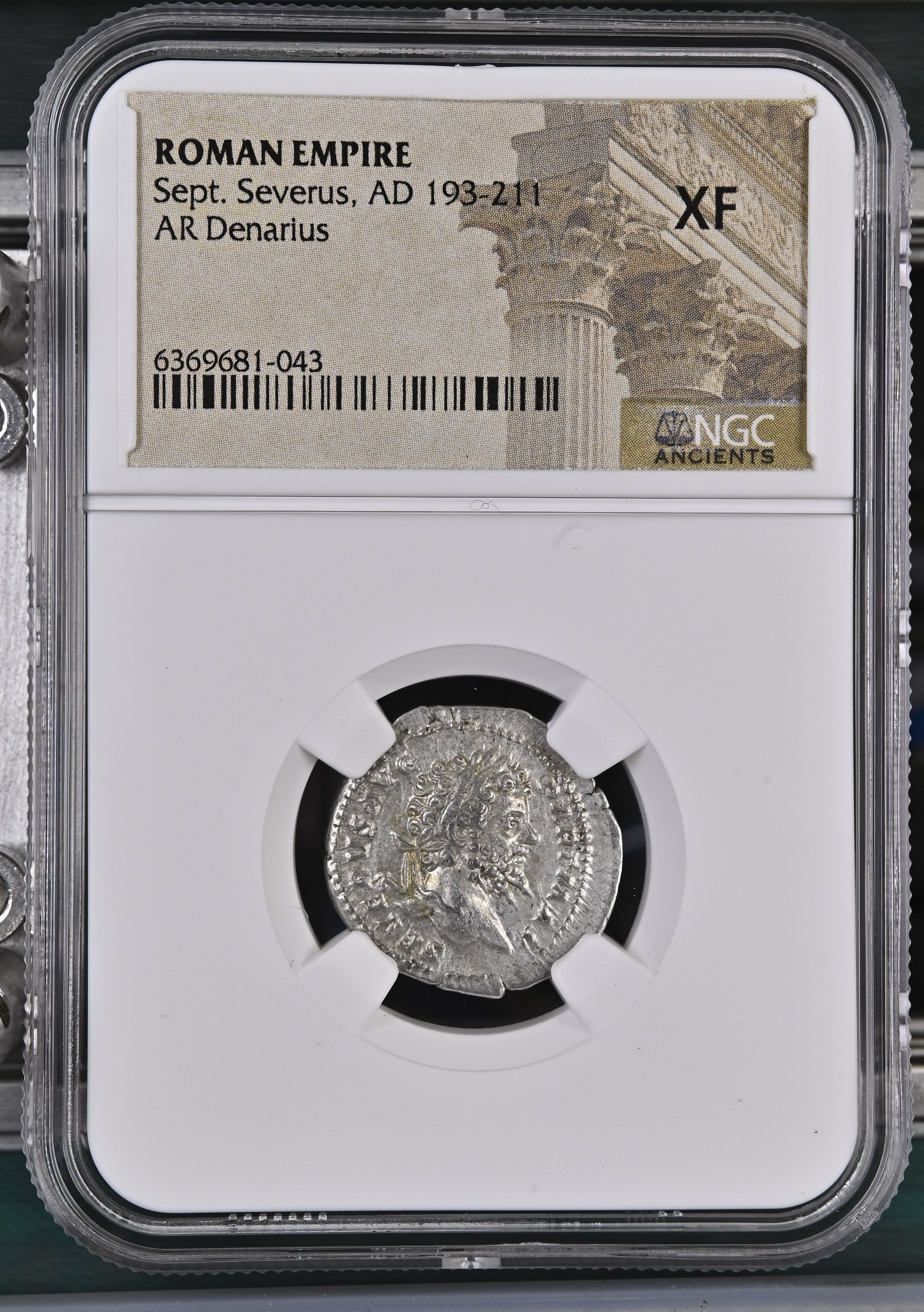 Image 1 of 4
Image 1 of 4

 Image 2 of 4
Image 2 of 4

 Image 3 of 4
Image 3 of 4

 Image 4 of 4
Image 4 of 4





Roman Coin of Diocletian (about 1720 years ago)
An important bronze coin from the emperor who ended decades of chaos through major administrative reforms, establishing the Tetrarchy system that would influence imperial governance for generations.
Front side (obverse): Portrait of Emperor Diocletian with imperial crown
Back side (reverse): Roman imperial symbols and inscriptions
Technical specifications: Bronze coin, NGC certified
Historical significance: Diocletian rose to power in 284 CE and stabilized the Roman Empire after fifty years of near-anarchy. He ruled with strict authority, implementing extensive administrative reforms and persecuting Christians throughout the empire. Today, he is particularly remembered for his massive Palace in Split (modern Croatia), which influenced architectural designs even into the 19th century.
An important bronze coin from the emperor who ended decades of chaos through major administrative reforms, establishing the Tetrarchy system that would influence imperial governance for generations.
Front side (obverse): Portrait of Emperor Diocletian with imperial crown
Back side (reverse): Roman imperial symbols and inscriptions
Technical specifications: Bronze coin, NGC certified
Historical significance: Diocletian rose to power in 284 CE and stabilized the Roman Empire after fifty years of near-anarchy. He ruled with strict authority, implementing extensive administrative reforms and persecuting Christians throughout the empire. Today, he is particularly remembered for his massive Palace in Split (modern Croatia), which influenced architectural designs even into the 19th century.
An important bronze coin from the emperor who ended decades of chaos through major administrative reforms, establishing the Tetrarchy system that would influence imperial governance for generations.
Front side (obverse): Portrait of Emperor Diocletian with imperial crown
Back side (reverse): Roman imperial symbols and inscriptions
Technical specifications: Bronze coin, NGC certified
Historical significance: Diocletian rose to power in 284 CE and stabilized the Roman Empire after fifty years of near-anarchy. He ruled with strict authority, implementing extensive administrative reforms and persecuting Christians throughout the empire. Today, he is particularly remembered for his massive Palace in Split (modern Croatia), which influenced architectural designs even into the 19th century.
Diocletian (/ˌdaɪ.əˈkliːʃən/ DY-ə-KLEE-shən; Latin: Gaius Aurelius Valerius Diocletianus; Ancient Greek: Διοκλητιανός, romanized: Diokletianós; 242/245 – 311/312), nicknamed Jovius, was Roman emperor from 284 until his abdication in 305. He was born Diocles to a family of low status in the Roman province of Dalmatia. Diocles rose through the ranks of the military early in his career, eventually becoming a cavalry commander for the army of Emperor Carus. After the deaths of Carus and his son Numerian on a campaign in Persia, Diocles was proclaimed emperor by the troops, taking the name Diocletianus. The title was also claimed by Carus's surviving son, Carinus, but Diocletian defeated him in the Battle of the Margus.
Diocletian's reign stabilized the empire and ended the Crisis of the Third Century. He initiated the process of the Roman Empire split and appointed fellow officer Maximian as Augustus, co-emperor, in 286. Diocletian reigned in the Eastern Empire, and Maximian reigned in the Western Empire. Diocletian delegated further on 1 March 293, appointing Galerius and Constantius as junior colleagues (each with the title Caesar), under himself and Maximian respectively. Under the Tetrarchy, or "rule of four", each tetrarch would rule over a quarter-division of the empire. Diocletian secured the empire's borders and purged it of all threats to his power. He defeated the Sarmatians and Carpi during several campaigns between 285 and 299, the Alamanni in 288, and usurpers in Egypt between 297 and 298. Galerius, aided by Diocletian, campaigned successfully against Persia, the empire's traditional enemy, and in 299, he sacked their capital, Ctesiphon. Diocletian led the subsequent negotiations and achieved a lasting and favorable peace.
























